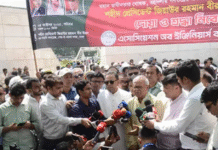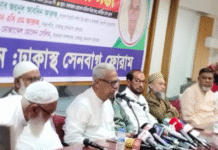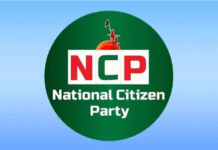
“They committed the genocide at Satkura, a predominantly Hindu area, killing 52 people who had taken refuge in bush and paddy field near a primary school on April 20, 1971 ,” recalled PW-24 Babul Chakrabarty while testifying against the accused before the International Crimes Tribunal-1.
On the same day, Babul said, the perpetrators had also killed his father Manmohan Chakrabarty after dragging him out of their house.
Later, the bullet-riddled bodies were buried without any rituals, he added.
The PW told the tribunal that during the Liberation War, between April and December 14, 1971, nearly 300-350 people were killed in his area.
Before concluding his testimony, Babul identified detained war crimes accused SQ Chowdhury in the dock.
Later, the witness was cross-examined by Ahsanul Huq Hena, a senior defence counsel.
Replying to a defence question, PW Babul said: “I can’t recall whether I filed a case with Boalkhali Police Station on February 28, 1972 about the killing of my father implicating six persons, including SQ Chowdhury.”
He, however, said that some people of Satkura had filed a case in connection with the genocide after collecting the names of the victims of the tragic episode.
BNP stalwart SQ Chowdhury faces 23 counts of charges under different provisions of section 3 (2) of the International Crimes (Tribunals) Act 1973, including genocide in collaboration with the Pakistan occupation army, killing, extermination of Hindu minority groups, deportation, persecution and abduction in Chittagong district.









